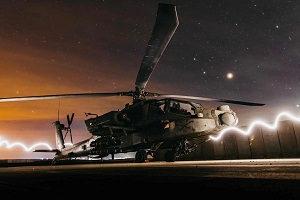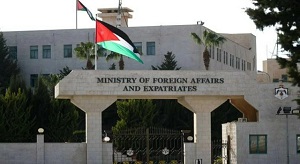"Civil war in Lebanon"... Is now on the lips of Lebanon’s politicians and journalists, and Arab and foreign diplomats are warning against it. This major and grave threat should not be taken lightly, though exaggeration that leads to panic should also be avoided.
On the one hand, there are a few somewhat reassuring factors. No armed faction in Lebanon is fighting alongside the Israelis today and Israel has no political project for Lebanon, in contrast to 1982, for example.
Additionally, no foreign actor is inciting or funding a civil war. The specialists are not equipped to undertake this task right now: Assad's Syria is busy with its extraordinary circumstances, while Saddam's Iraq and Gaddafi's Libya are dead and gone. As for Khomeinist Iran, its military export routes to Lebanon have been cut off or, at the very least, are being monitored and impeded.
It should also be safe to assume that no one in Lebanon, after this ongoing catastrophe, is going to be willing or able to fight a civil war. Added to Hezbollah’s unarmed opponents, much of its rank and file, and everyone - albeit to varying degrees - are overwhelmed by pain, sorrow, and exhaustion.
On the other hand, we do nonetheless have a duty to be cautious. The full picture, which has yet to emerge, could shatter prior expectations. The likelihood of an extended Israel-Hezbollah conflict, even if it takes different forms, seems higher than that of a swift cessation of hostilities. In any case, it is essential that we avoid underestimating the potential implications of strong, worrying trends that, unfortunately, have the potential to grow.
Regardless of the solidarity with the displaced, both genuine and folkloric, there are real tensions among Lebanon’s sects, with or without their political and partisan forces. Bad blood taints the past, and two fundamentally opposed visions for Lebanon are competing in the present. Several impending flashpoints could, under the current tense climate, become explosive, like the question of whether to give primacy to the election of a new president or a ceasefire...
The question of displacement is immense in every sense, and it has massive explosive potential, especially given the scarcity of resources, the current trajectory toward even greater scarcity, and the diminishing economic and financial capabilities of the state. We must also account for Israel’s capacity to manipulate security fears and, through air raids and other acts of brutal aggression against the Shiite community and its regions, sharpen and stir mutual wariness among different segments of the population.
Another major question laden with destructive potential, is whether Hezbollah will agree to turn into an unarmed political party like all the others. Since it will probably refuse to do so, we cannot rule out its opponents - somewhat recklessly and vengefully - expanding their hostility for the party to the Shiite community as a whole, leaving the political dimension of the dispute overwhelmed by its sectarian dimension. In this regard, honesty compels us to acknowledge that continued expressions of solidarity with the party are negatively impacting those who express them and inter-sectarian relations overall.
The longer the war goes on and new realities are denied, the shorter the path to conflict and the worse the crisis of communication among the Lebanese become, especially since those who speak for Hezbollah and its allies have not abandoned their haughty and high-handed rhetoric, continuing to threaten, intimidate, and accuse of treason anyone who does not share their views. To say nothing about recent signs that point to a growing push to tarnish the image of the army and any role it could play in preventing the outbreak of civil strife, despite the army being the only body capable of doing so.
On top of that, three sticky situations intersect when matters are left in a political vacuum, at a point where decay meets explosive potential:
- The opportunism and cynicism of Israel’s policies for the "day after" in Lebanon, as well as the Gaza Strip
- The cowardice of the politicians running Lebanon, who, despite their denials, are keenly aware of their limited legitimacy, which prevents them from taking initiatives independently of Hezbollah.
- The failures of foreign diplomatic intervention, given the degree to which foreign powers have appeased Israel and its violations of international law, as well as their total lack of confidence that the Lebanese would effectively and decisively engage with such efforts.
This state of affairs is part of a broader and more concerning climate brimming with major shifts that, like all major shifts, are likely to incite violence and spur preparations for war:
On the one hand, the inter-sectarian balance of power and inter-sectarian relationships will change substantially because the war has weakened the Shiite community on multiple levels.
On the other hand, the ongoing war will further erode citizens’ confidence in the principle of coexistence - a trajectory whose manifestations had begun to appear and proliferate before the war.
Finally, many episodes of Lebanon's modern history warn that every time Lebanese were directly embroiled in war for reasons that transcend our national borders - whether they are labeled nationalistic, religious, or anything else - we end up with a destructive civil war in which each of us becomes the enemy of the other.
Latest News
-
 Jordan takes part in operation targeting Daesh locations
Jordan takes part in operation targeting Daesh locations
-
 Prime minister inspects infrastructure work at Amra City project
Prime minister inspects infrastructure work at Amra City project
-
 Syria monitor says US strikes killed at least five Daesh members
Syria monitor says US strikes killed at least five Daesh members
-
 Jordan welcomes lifting of US sanctions on Syria
Jordan welcomes lifting of US sanctions on Syria
-
 King hails Nashama achievement, Jordanians’ unity, resilience
King hails Nashama achievement, Jordanians’ unity, resilience